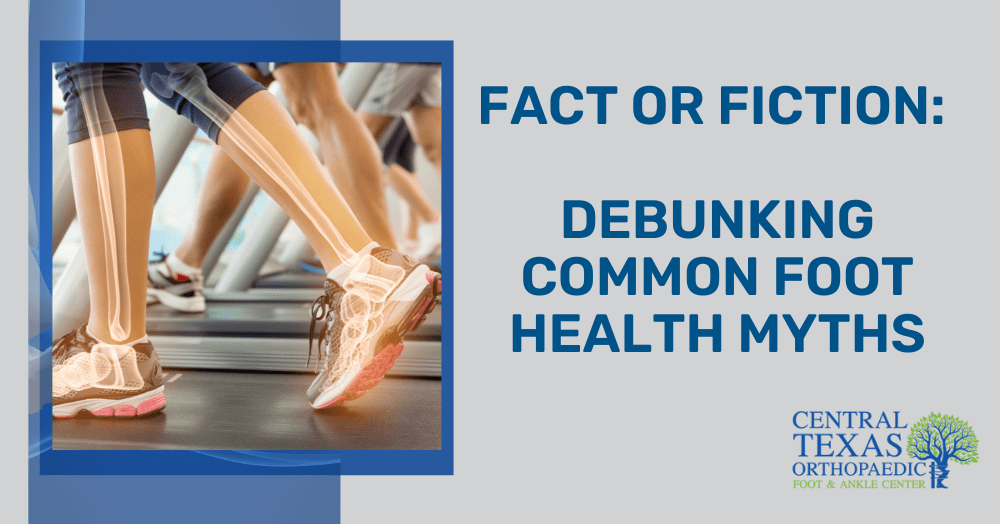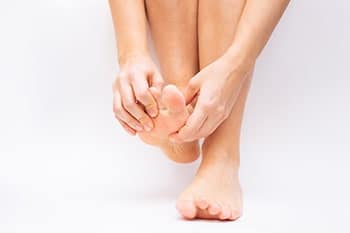Debunking Common Foot Health Myths

Whether it’s that nagging ache after a long day or a sharp pain from an unexpected injury, there is a lot of misinformation out there that can leave you confused. You might have heard things like, “If you can walk on it, it’s not broken,” or, “Cracking your joints will cause arthritis,” but are these old stale myths true? We closely evaluated these myths and found the answers for you. We even included the “Foot Facts” you need to help you keep your feet healthy and pain-free.
Myth: If you can walk on it, it’s not broken ~
Possibly True, but not always: This is one of the most popular myths surrounding foot and ankle injuries. Depending on the fracture, you may be able to walk with little to no pain after an injury. Small hairline fractures and some stress fractures may only cause discomfort at first, thus making walking after an accident possible without immediate pain, but it can be misleading.
Foot Fact: After an ankle or foot injury (trauma) occurs, the surge of adrenaline that rushes through your body can mask the seriousness of the encounter by dulling the pain. The adrenaline response helps your body cope with the injury, and though it may seem mild at first, it can potentially be something very serious, like a fracture. Ignoring persistent pain, swelling, or tenderness can make matters worse. Consulting an orthopaedic doctor can shed some light and help you get the relief you need.
Myth: Emotional or mental stress can cause foot pain ~
True: When we experience emotional stress, our heart rates increase, and our muscles tense. Long periods of stress or anxiety can not only make other medical issues worse but can also increase pain sensitivity, especially for people living with arthritis or fibromyalgia. Long-term stress can heighten middle and lower back pain, too, creating radiating pain that stems from the lower back, down the leg, and into the foot.
Foot Fact: Reducing stress and integrating yoga and muscle relaxation activities may help lessen painful feet. If symptoms persist, you should consult a doctor. An expert opinion may be necessary to rule out any serious issues.
Myth: Cracking your toe and ankle joints are bad for you and will cause arthritis ~
False: Whether you are a knuckle cracker or not, the chances of developing arthritis are the same. The snap, crackle, and popping “noise” from our joints can be caused by things like gas bubbles between joints, arthritis, or tendons moving over injuries from surrounding muscles, tendons, and ligaments. Though it may become a habit, knuckle cracking is typically not harmful.
Foot Fact: If you like the sound or how it feels to crack your joints, you do not have to stop. However, too much knuckle cracking can lead to other issues like sprains or ligament problems. If the toe cracking or popping sounds cause pain, swelling, or a limited range of motion, it can be a sign of a more serious condition, such as a broken toe or osteoarthritis, and should be examined by a doctor.
If you’re experiencing persistent foot or ankle pain don’t hesitate to consult with an orthopedist. If you live in Central Texas, give CTX Foot and Ankle Center a call at 254-313-9559 to schedule an appointment with Dr. Bednarz and start your journey to get relief from your foot pain today.

